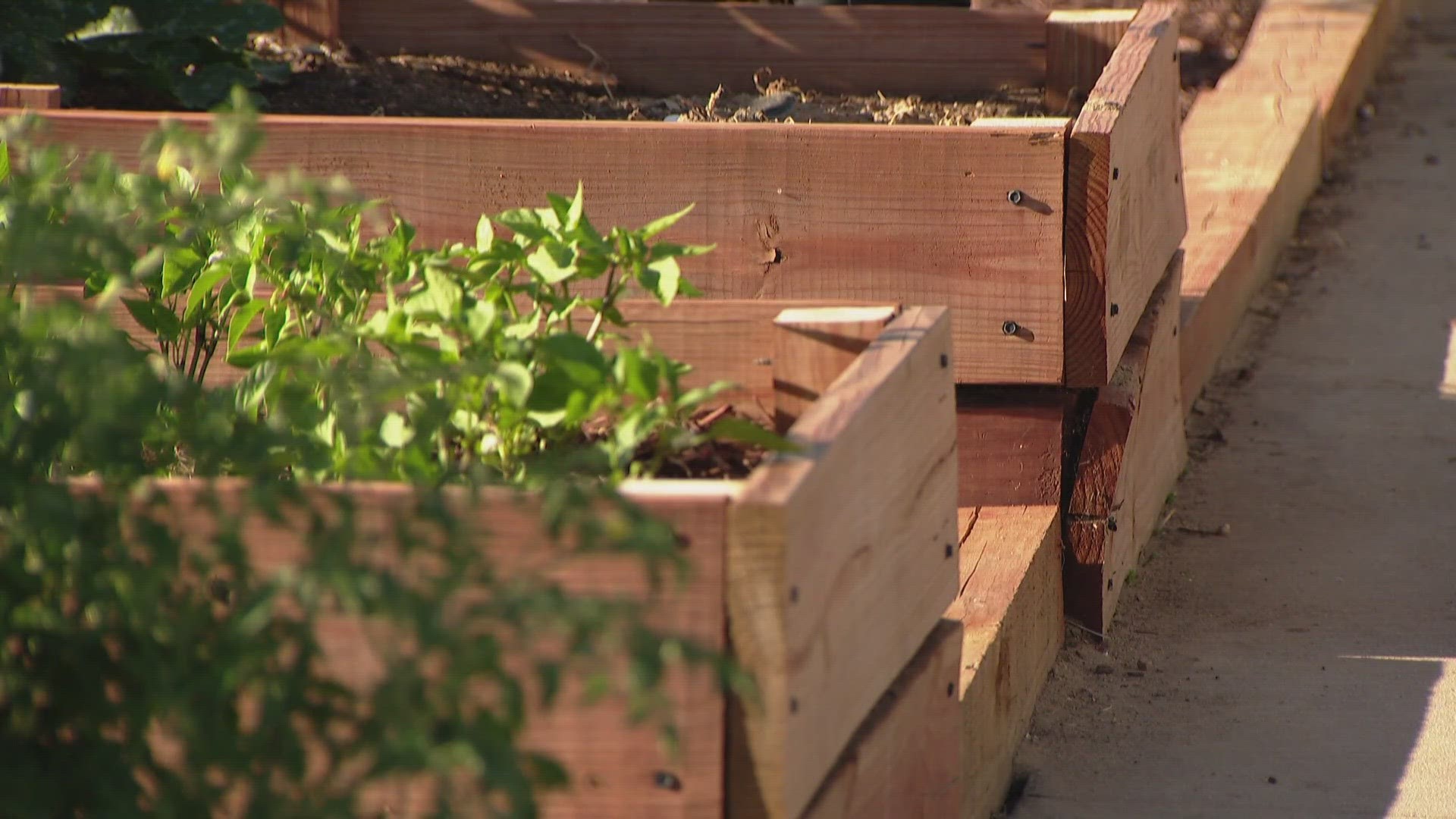DENVER — Denver could get hit with its first freeze of the season this weekend, which means it's time to consider covering home garden crops.
For anyone who holds out hope of getting a little more growth out of the garden before it's consistently cold, one expert said it might be time to call it quits with some plants.
Debi Borden-Miller, a coordinator with the Colorado Nursery and Greenhouse Association, recommended summer garden plants come off the vine and inside before the cold weather hits. The weekend forecast predicts highs from the mid-50s to high 60s, with lows as far down as 31 degrees.
Although it's expected to heat back up a bit on Monday and Tuesday, Borden-Miller said temperatures probably won't be warm enough to enhance the ripening process for summer plants.
"It's still awful chilly for things like tomatoes, cucumbers, squashes, peppers," she said. "They like the heat, and they like it warm."
If some of plants look like they're very close to being ready, they'll still be OK to put on a plate and enjoy, Borden-Miller said.
"You can eat the squashes in zucchinis as very young fruits, and the tomatoes too will ripen in the house," she said.
Just because it's time for summer plants to make their exit, that doesn't mean gardening is out of the picture until next growing season. Borden-Miller said some common garden plants can thrive under cooler temperatures, and they should continue ripening through next week.
"Things like broccoli, cabbage, cauliflower, spinach, leafy green things, kale, all those, like the cooler weather," she said. "Although they might need a little protection, a little frost blanket or little something over them on the night that it's actually going to frost."
Some plants that grow in the ground might have more time to keep growing. Crops like carrots and beets can stay in the dirt through frost and cool weather as long as the ground itself isn't frozen. Weather permitting, they could last you through the holidays, Borden-Miller said.
"I've harvested carrots before for Christmas dinner, or Christmas Eve dinner," she said.
If there's potential for a ground freeze, there may be one last defense to help protect ground growers. Borden-Miller said that mulching around those plants can provide protection between frost and the ground.
"Even if the ground freezes where it's mulched, it'll protect them for even that much longer," she said.
Tips for covering plants
For plants that need protection from the impending freeze, we have a few tips to keep your garden safe.
Frost blankets
One way to keep plants freeze-free is with a frost blanket. Borden-Miller said local garden centers will have a variety of types and sizes – it's up to you to decide how you'd like your garden to be covered.
"Some of them are more woven, some of them are poly spun lightweight fabrics that you can open up and they come in a lot of different sizes," she said. "So you can cover the whole garden with one big sheet or you can buy smaller ones."
Keep it separated
Borden-Miller said frost blankets need to be elevated above the tops of the plants they're protecting. If they're not, plants could begin to wither from any frost accumulating on the cover.
"If it does freeze hard enough, which 30 degrees is getting pretty chilly, it will freeze where it's touching," she said. "So you may lose some leaves or the very tops of the plants."
To remedy this, Borden-Miller recommended using sticks or garden stakes to create a little bit of airspace between the fabric and your plants.
Anchor down
In addition to the cold temperatures, there could be some strong winds that'll blow your cover off and ruin all that protective preparation.
Borden-Miller said you can anchor down your frost blanket using ground stakes or just some good-sized rocks to keep everything secure from the wind.
More 9NEWS stories on gardening:
SUGGESTED VIDEOS: Colorado Guide

